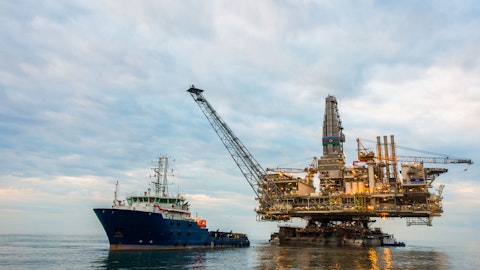And on top of that, as always, there always is opportunistic acquisitions that can come our way and we’re very good at doing those should – that opportunity come that way. So I don’t really see any real change to our business. I think it’s – if you look at our succession, everybody is well-engrained in the company and understands all the opportunities that we have, and we constantly work on those opportunities to make sure we’re ready to exercise those opportunities should that time happen. Now, Scott?
Scott Stauth: Yes, yes. Neil, I agree with everything Tim said, and just the robust nature of our assets, free cash flow generation that the company has been able to develop over the years and continue to work on and improve, and I don’t see our focus changing. Tim outlined everything that that we’ve done in the past and we’re going to continue to work on in the future. So I think that you should see much the same in the future as what you’ve seen in the past.
Neil Mehta: Thanks, Tim and Scott. The follow-up is just on consolidation. South of the border, we’ve seen some really big deals here over the last couple of weeks in the E&P space by the majors, and I’m just curious on your views on whether there is room for further consolidation in Canada and perspectives on CNQ’s potential role there.
Tim McKay: Yes, I mean, I mean, consolidation could happen here in Canada as well, but the key is that, for us anyways, is we have a huge reserve base. And so we don’t have to do any acquisitions to create or find more reserves, so we have that part in the bag. To me, we can sit back, do what we do best, and that’s just exploit those opportunities, be methodical with our growth plan, and should something opportunistic happen our way that that may happen, but to me we’ve got one of the largest reserve opportunities in the world, so that’s the key for us.
Neil Mehta: Okay, thanks.
Operator: Thank you. The next question comes from Greg Pardy at RBC Capital Markets. Please go ahead.
Greg Pardy: Yes, thanks. Good morning. And thanks for the rundown. So, first off, Tim, congratulations. You have been great to work with, and we’re glad you’re not going until the summer. And absolutely welcome Scott and others as well. So, I wanted to stay a little bit on the successorship. I was going through your info circular recently, and it looks as though there is a very, I mean: a) there’s a strong culture of promoting within, but there is also almost like a defined game plan for folks on the management committee in terms of how successorship works and so forth. Could you talk about that a little bit?
Tim McKay: Well, I don’t know really how I could talk more to it. Every year we do a very thorough job of our succession plan. And so to me it’s never a surprise, it’s well thought out. People are generally moved to different positions for grooming or learning, however, you want to call it. And as people grow at the company and they perform, they generally move right along. So, to me the longevity of the people that come here, they love the culture, they love working with people, and they love the opportunities the company has before it. So, to me, it’s just a great place to work and a great place that we can develop our own people internally and promote within.
Greg Pardy: Okay, got it. Tim, thanks for that. And then I’ll completely switch gears maybe and just fire one at Mark, but in terms, I mean, huge cash flow generation, working capital impacts, obviously, in the quarter. I am curious how you sort of see the balance of the year going or the fourth quarter going in terms of net working capital changes? And then just with respect to Trans Mountain, I know you’ve got just under 100,000 barrels a day on that. When you go into line pack, is that going to materially increase working capital as you go into the first quarter? It’s something that Cenovus just flagged on their call. I was just curious how much it impacted you guys.





